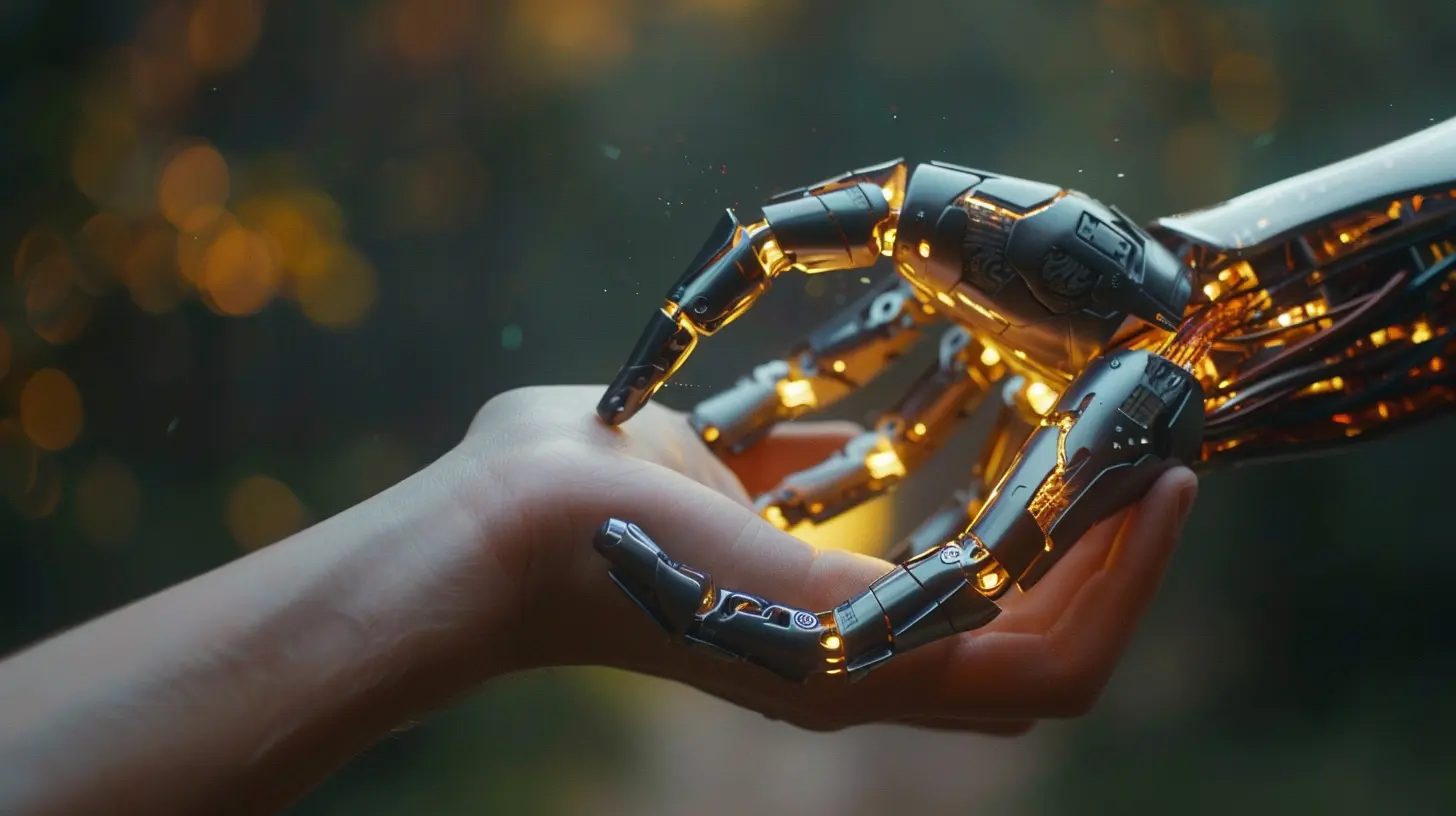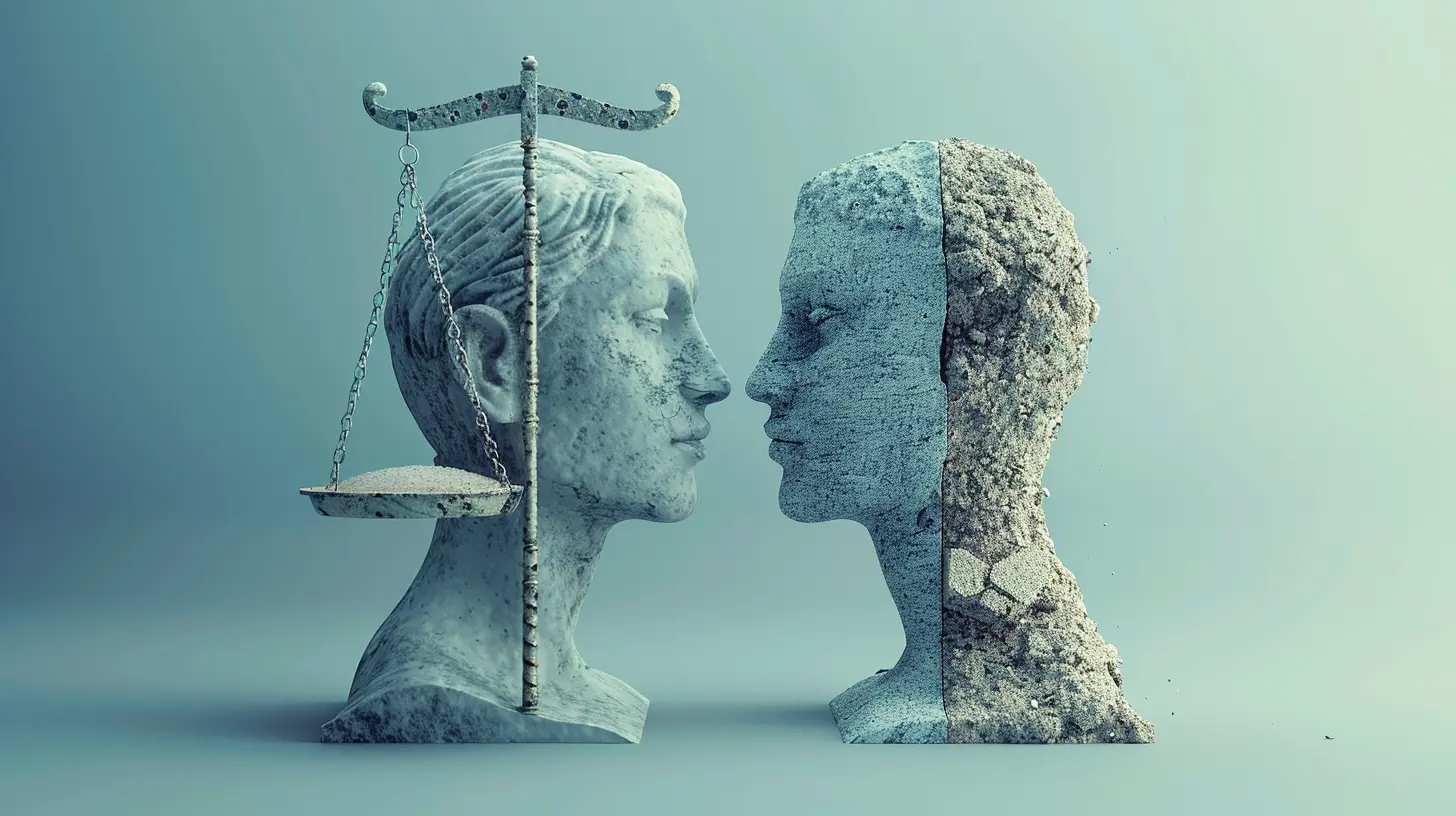Ethical Dilemmas in AI-Powered Decision Support Systems
1 September 2025
Artificial intelligence (AI) is changing the way we make decisions, from healthcare diagnostics to criminal sentencing. AI-powered decision support systems (DSS) can process massive amounts of data, uncover patterns we might miss, and offer insights that feel almost magical. But with great power comes great responsibility—especially when AI starts influencing real-world decisions that affect human lives.
The ethical dilemmas surrounding AI-powered DSS are complex. Who’s responsible when an AI makes a bad call? Can we trust algorithms to be fair? And what happens when human bias sneaks into the machines that were supposed to be objective? Let’s dive deep into these tricky questions.
1. The Problem of Bias: Can AI Ever Be Truly Fair?
Imagine you apply for a loan, and the bank’s AI denies your application. You have a decent income, a good credit score, and no outstanding debts. So what went wrong? Turns out, the AI learned from historical data that people from your neighborhood are more likely to default. That’s not fair, right?AI systems learn from past data, and if that data contains biases, the AI will reflect and even amplify them. This is a huge issue in systems used for hiring, law enforcement, and healthcare. If an AI is trained on flawed or biased data, it can reinforce discrimination rather than eliminate it.
Even tech giants like Google and Amazon have run into trouble with biased AI. Amazon scrapped its hiring AI when it realized the system was downgrading resumes that contained the word "women’s." That’s the problem—an AI doesn’t decide to be biased. It just reflects whatever data it was fed.
Possible Solutions to AI Bias
- Better Data Curation: Ensuring training data is diverse and representative.- Bias Audits: Regularly checking AI models for discriminatory patterns.
- Human Oversight: Keeping humans in the loop to spot and correct biased decisions.
But even with these measures, the question remains: Can AI ever be truly fair when humans themselves struggle with bias?
2. The Black Box Problem: Can We Trust What We Can’t Understand?
Would you trust a doctor who refuses to explain their diagnosis? Probably not. But that’s exactly what happens with many AI-powered decision systems—they give answers without showing their work.This is known as the "black box problem." Many machine learning models, especially deep learning systems, are so complex that even their own developers can’t fully explain why they make certain decisions. That’s a big problem when AI is used for high-stakes decisions like medical diagnoses or parole recommendations.
In 2018, a healthcare AI used to predict which patients needed extra medical attention was found to favor white patients over Black patients. The irony? The AI wasn’t trained on race explicitly—it had learned to use healthcare spending as a proxy, assuming that those who spent more needed more care. But because Black patients historically had less access to healthcare, the system unintentionally reinforced disparities.
How Can We Make AI More Transparent?
- Explainable AI (XAI): Developing AI models that can clearly justify their decisions.- Interpretable Algorithms: Using simpler models when possible.
- Regulations for AI Transparency: Forcing companies to disclose how their AI systems work.
Without transparency, we’re left with a modern "trust me, bro" situation. And when it comes to decisions that affect lives, that’s not good enough.
3. Responsibility and Liability: Who Takes the Blame?
Let’s say an AI-powered self-driving car crashes into another vehicle. Who’s responsible? The car manufacturer? The software developers? The AI itself?The issue of accountability is one of the biggest ethical dilemmas in AI. Traditional laws were designed to hold humans accountable for their actions. But AI decisions aren’t made by humans alone—they’re influenced by algorithms, training data, and software updates.
This gets even trickier in areas like predictive policing and automated hiring. If an AI makes an unfair decision, who do you complain to? A faceless corporation? A software engineer who wasn’t even involved in the decision?
Potential Solutions for AI Accountability
- AI Liability Laws: Governments crafting new laws that define AI responsibility.- Human-in-the-Loop Systems: Ensuring a human has the final say on critical AI-driven decisions.
- Ethical AI Development: Companies proactively setting rules on how AI should be used.
At the end of the day, AI shouldn't be a scapegoat. Someone has to be responsible. But figuring out who that "someone" is? That’s the real challenge.
4. Privacy vs. AI Efficiency: How Much Do We Trade for Convenience?
AI thrives on data—the more, the better. But where does that data come from? Us. Every click, every search, every online purchase feeds AI models. And sometimes, that includes sensitive information like medical records, financial history, and even private conversations.While AI can make life easier (think personalized recommendations or fraud detection), it also poses serious privacy risks. What happens when companies collect too much? Or when AI systems get hacked?
A real-world example is the Cambridge Analytica scandal, where AI-powered algorithms used Facebook data to influence elections. That raised an unsettling question: Are we truly in control of AI, or is it quietly shaping our decisions?
How Can We Balance Privacy and AI Innovation?
- Stronger Data Protection Laws: Regulations like GDPR help limit data misuse.- User Control Over Data: Allowing people to manage how their data is used.
- Ethical AI Training Practices: Avoiding unnecessary data collection.
It’s a constant tug-of-war. We love the convenience of AI, but at what cost?
5. Job Displacement: Is AI Stealing Our Jobs?
AI-powered DSS are changing industries at lightning speed, but that also means automation is replacing human roles. From automated resume screening to AI-powered legal research, many white-collar jobs are feeling the heat.While some argue that AI creates new opportunities, others fear massive job losses. The World Economic Forum predicts that AI could replace 85 million jobs by 2025. That’s not just factory workers—we’re talking accountants, analysts, and even journalists.
How Can We Prepare for an AI-Driven Job Market?
- Upskilling Programs: Training workers for roles that AI can’t easily replace.- AI-Human Collaboration: Designing AI systems that assist rather than replace humans.
- Stronger Labor Policies: Governments stepping in to protect vulnerable workers.
The future of work isn’t about eliminating AI—it’s about ensuring humans don’t get left behind.
Conclusion: Can We Solve These Ethical Dilemmas?
AI-powered decision support systems offer incredible possibilities, but they also bring serious ethical challenges. Bias, transparency, responsibility, privacy, and job displacement—these aren’t just theoretical issues; they affect real people every day.So, where do we go from here? The key lies in balancing innovation with ethics. AI should be a tool that empowers, not a force that controls. We need better regulations, more accountability, and a commitment to building AI that serves everyone fairly.
As AI continues to evolve, one thing is clear: Ethical dilemmas won’t disappear overnight. But by asking the hard questions and pushing for responsible AI, we can shape a future where technology truly benefits humanity.
all images in this post were generated using AI tools
Category:
Ai EthicsAuthor:

Marcus Gray
Discussion
rate this article
1 comments
Fatima Chavez
This article sheds light on the critical ethical challenges we face with AI in decision-making. It’s essential to prioritize transparency and accountability to ensure technology serves humanity responsibly. Thank you for addressing these important issues that will shape our future.
September 12, 2025 at 4:23 AM

Marcus Gray
Thank you for your insightful comment! I completely agree that transparency and accountability are vital for responsible AI integration in decision-making.


